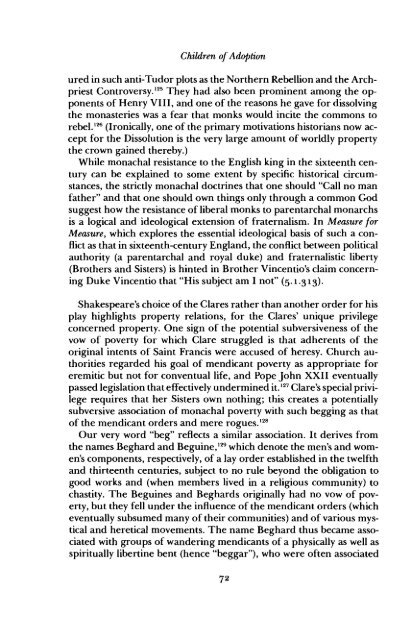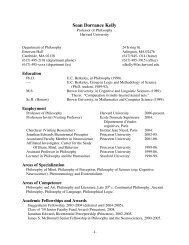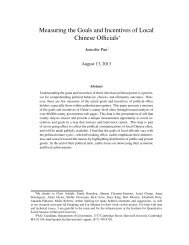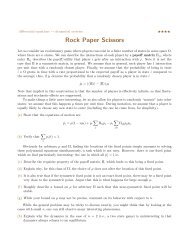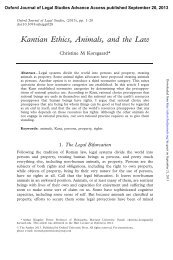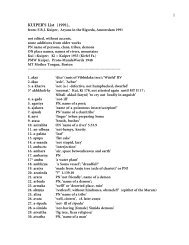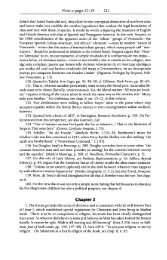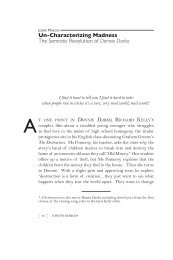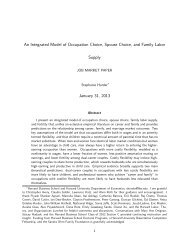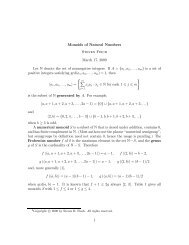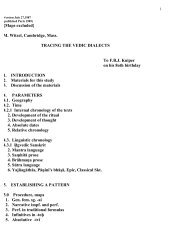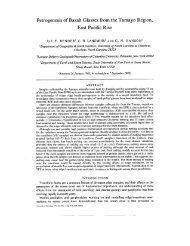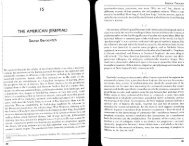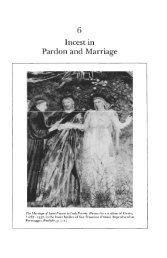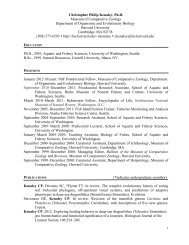Children of Adoption - People Fas Harvard
Children of Adoption - People Fas Harvard
Children of Adoption - People Fas Harvard
Create successful ePaper yourself
Turn your PDF publications into a flip-book with our unique Google optimized e-Paper software.
<strong>Children</strong> <strong>of</strong> <strong>Adoption</strong><br />
ured in such anti-Tudor plots as the Northern Rebellion and the Archpriest<br />
Contr~versy.'~~ They had also been prominent among the opponents<br />
<strong>of</strong> Henry VIII, and one <strong>of</strong> the reasons he gave for dissolving<br />
the monasteries was a fear that monks would incite the commons to<br />
rebe1.Iz6 (Ironically, one <strong>of</strong> the primary motivations historians now accept<br />
for the Dissolution is the very large amount <strong>of</strong> worldly property<br />
the crown gained thereby.)<br />
While monachal resistance to the English king in the sixteenth century<br />
can be explained to some extent by specific historical circumstances,<br />
the strictly monachal doctrines that one should "Call no man<br />
father" and that one should own things only through a common God<br />
suggest how the resistance <strong>of</strong> liberal monks to parentarchal monarchs<br />
is a logical and ideological extension <strong>of</strong> fraternalism. In Measure for<br />
Measure, which explores the essential ideological basis <strong>of</strong> such a conflict<br />
as that in sixteenth-century England, the conflict between political<br />
authority (a parentarchal and royal duke) and fraternalistic liberty<br />
(Brothers and Sisters) is hinted in Brother Vincentio's claim concerning<br />
Duke Vincentio that "His subject am I not" (5.1.313).<br />
Shakespeare's choice <strong>of</strong> the Clares rather than another order for his<br />
play highlights property relations, for the Clares' unique privilege<br />
concerned property. One sign <strong>of</strong> the potential subversiveness <strong>of</strong> the<br />
vow <strong>of</strong> poverty for which Clare struggled is that adherents <strong>of</strong> the<br />
original intents <strong>of</strong> Saint Francis were accused <strong>of</strong> heresy. Church au-<br />
thorities regarded his goal <strong>of</strong> mendicant poverty as appropriate for<br />
eremitic but not for conventual life, and Pope John XXII eventually<br />
passed legislation that effectively undermined it.Iz7 Clare's special privi-<br />
lege requires that her Sisters own nothing; this creates a potentially<br />
subversive association <strong>of</strong> monachal poverty with such begging as that<br />
<strong>of</strong> the mendicant orders and mere rogues.Iz8<br />
Our very word "beg" reflects a similar association. It derives from<br />
the names Beghard and Beguine,Iz9 which denote the men's and wom-<br />
en's components, respectively, <strong>of</strong> a lay order established in the twelfth<br />
and thirteenth centuries, subject to no rule beyond the obligation to<br />
good works and (when members lived in a religious community) to<br />
chastity. The Beguines and Beghards originally had no vow <strong>of</strong> pov-<br />
erty, but they fell under the influence <strong>of</strong> the mendicant orders (which<br />
eventually subsumed many <strong>of</strong> their communities) and <strong>of</strong> various mys-<br />
tical and heretical movements. The name Beghard thus became asso-<br />
ciated with groups <strong>of</strong> wandering mendicants <strong>of</strong> a physically as well as<br />
spiritually libertine bent (hence "beggar"), who were <strong>of</strong>ten associated


